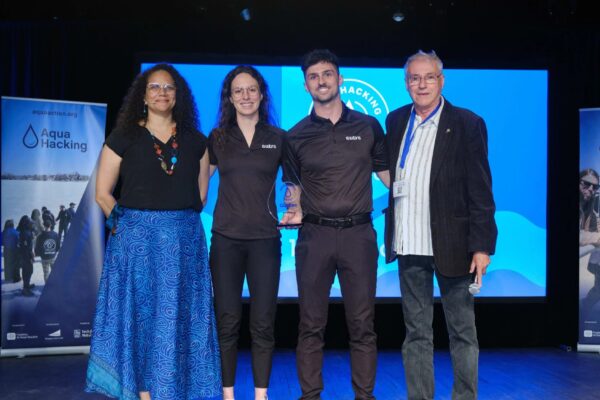- Research
-
YOU ARE
- Community member
- Future Student
- Student
- Professor
- Alumni
- Media
- Guidance counsellors
- INRS retiree
- Contact Us
- Newsroom
- Careers
- FR
-
Studies
We teach the next generation of researchers to develop scientific, social, and technological innovations.
-
Research
We find solutions through interdisciplinary research and industry or public and community partnerships.
-
INRS
We play an active role in Québec's economic, social, and cultural development.
As holder of the new Canada Research Chair in Biology of Intracellular Parasitism, Tier 1, INRS professor Albert Descoteaux will pursue his research on the molecular mechanisms that enable the parasite Leishmania to outsmart our immune system. With his team, he will look for new approaches to treat infections caused by intracellular pathogens.

How does the intracellular parasite causing leishmaniasis subvert its host cell’s membrane fusion mechanism? How does this subversion affect the functionality of infected cells and the immune response? To answer these questions, which are central to his research program, Professor Descoteaux will use cell biology, genetic, proteomic, and immunological approaches, as well as in vivo experimental models of leishmanisis.
“Leishmania is particularly adept at transforming macrophages into hospitable host cells and is a unique tool to study basic biological mechanisms of macrophages.”
Albert Descoteaux, professor.
There is yet no effective vaccine against the parasite Leishamia, which causes a spectrum of clinical symptoms ranging from skin sores to a visceral infection that can be fatal if not treated. Current treatments are costly and difficult to administer, and their efficacy is reduced by the spread of drug resistance. The scientific advances achieved by Professor Descoteaux’s team will help identify new therapeutic targets for infectious and inflammatory illnesses, including leishmaniasis, which is a serious health problem in nearly a hundred countries.
Chairholder bio
Professor Albert Descoteaux received a doctorate in parasitology from McGill University before pursuing postdoctoral studies at the University of Kentucky and Harvard Medical School. For over twenty years, he has being developing unique expertise in the molecular and cellular biology of the Leishmania-macrophage interaction at Centre INRS–Institut Armand-Frappier and has received international scientific recognition in the field of parasitology. He held the Canada Research Chair in Infections and Immunity from 2001 to 2011 and is director of the doctoral program in immunology and virology at INRS.
You may also like

November 20, 2017
Two Recipients of the Prestigious 2025 Vanier Scholarship

November 20, 2017
Marie-Pier Brochu Wins the 2025 AquaHacking Challenge FinalShare
